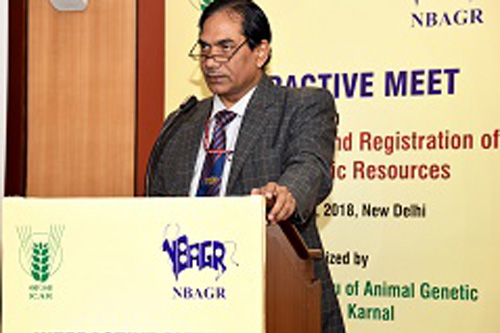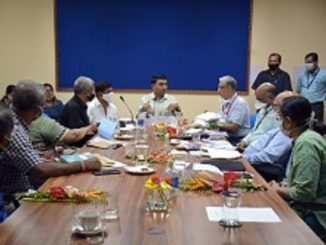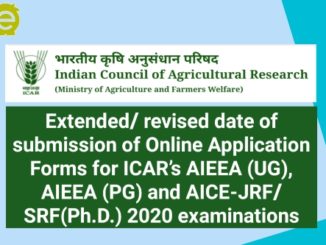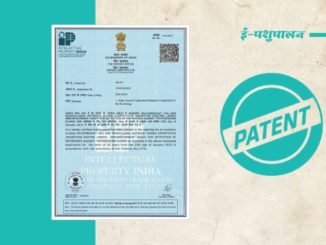3 December 2018: The ICAR and ICAR-National Bureau of Animal Genetic Resource, Karnal organized a stakeholder’s meet on Characterization and Registration of Animal Genetic Resources in India today at NASC Complex, New Delhi.

Dr. Trilochan Mohapatra, Secretary (DARE) & Director General (ICAR), in his inaugural address, emphasized on the need for quick characterization and registration of all kinds of animal genetic resources in the country, preferably within five years. He urged the Animal Husbandry Departments, Universities, ICAR and NGOs to come together for the accomplishment of this goal.
Dr. Joykrushna Jena, Deputy Director General (Animal Science /Fisheries Science) emphasized on the need of characterization and registration of Animal Genetic Resources in India to improve livestock and thereby, farmer’s income. He said that there is a need to develop a comprehensive road map for an early characterization and registration of livestock and poultry breeds. Dr. Jena also announced that skill development in this regard would be taken up by ICAR, NBAGR, Karnal with the organizing of adequate training programmes.
Dr Arjava Sharma, Director, ICAR-NBAGR briefed about the current status of Characterization and Registration of Animal Genetic Resources in India. He informed that in India, the process of registration of livestock and poultry breeds was initiated by registering 129 extant breeds of livestock and poultry. Within the last 10 years, around 183 breeds have been registered.
Dr. Suresh S. Honappagol, Animal Husbandry Commissioner, Government of India briefed about the government’s policies and programmes being carried out for animal genetic resources of India and also urged the AHDs / LDBs / Universities to conduct the regional meetings for speeding up the job of characterization and registration of animal genetic resources.
The meeting was attended by Animal Husbandry Officers & State Livestock Development Board Officers of more than 16 States, 12 state University Officers including two Vice Chancellors and representatives of 10 NGOs and 15 ICAR Institute Scientists.






Be the first to comment